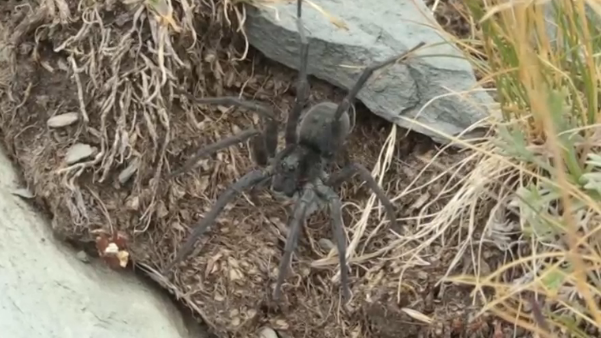
MONT BEGO, France (Reuters) — The survival of the giant alpine spider, scientifically known as Vesubia Jugorum, is threatened by global warming, archeologist and species specialist Marco Isaia warned.
The spider lives in grassland with rocky outcrops at heights between 2,600 and 2,700 meters (8,500-8,900 feet) in the French and Italian Alps.
The species, also referred to as the wolf spider, is endemic to the French national parc of Mercantour, home to the Mont Bego peak, as well as to the Italian national parc of Alpi Marittime.
The females can grow to 20-25 millimeters and males reach 15-18 millimeters in size.
Hotter temperatures are forcing the spider to climb higher in the mountains and look for more suitable climate conditions in order to survive, Isaia says, adding that as temperatures in high altitudes continue to rise, the species could end up with no habitat.
Isaia and his team applied for the giant alpine spider to be put on the red list of the International Union for Conservation of Nature, for it to be recognized as a threatened species. Isaia expects a positive answer in November.
No research had been conducted on this specific spider species since the 1980s, and the French national park of Mercantour decided to fund a preliminary study led by Isaia to monitor the presence of the species in the park area.








